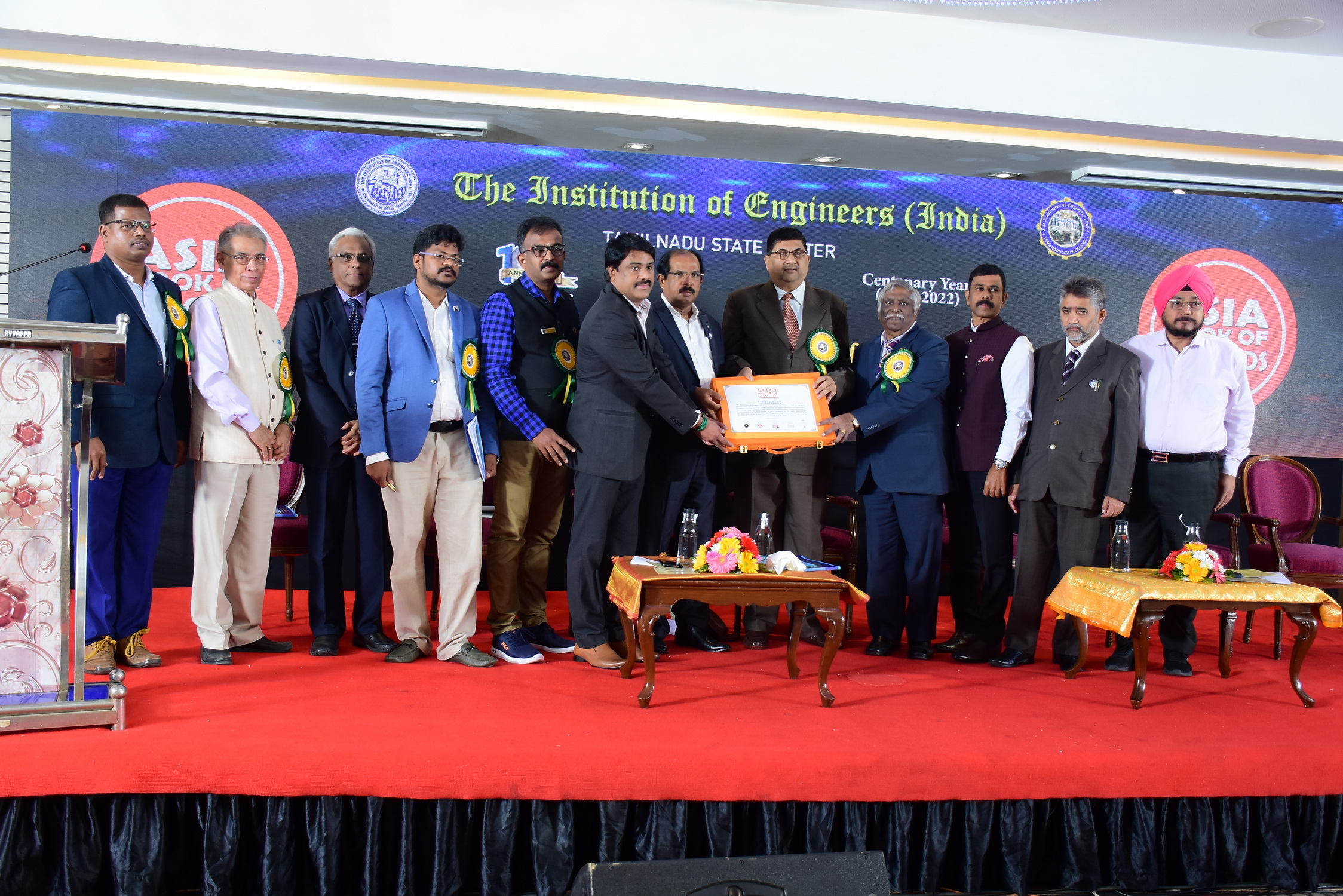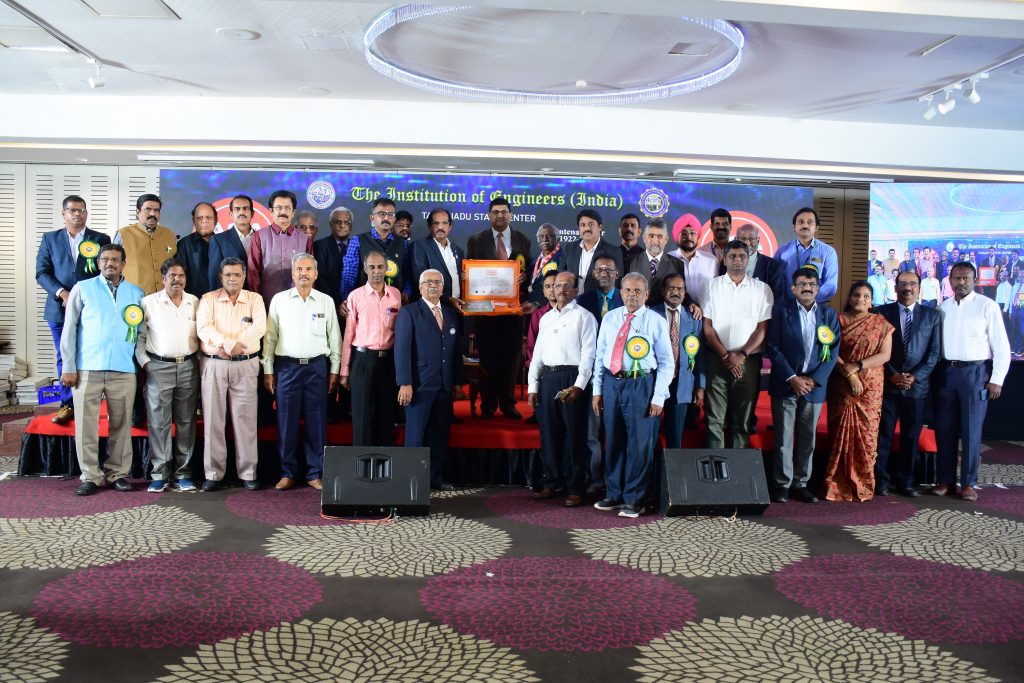Webinars on Sustainable Development

Webinars on Sustainable Development
The Institution of Engineers (India), Tamil Nadu state centre and its 16 local centres set a record for the longest duration to conduct webinars on Sustainable Development of the Nation. The total time taken was 106 hours.
Engineers can play an important role in sustainable development by planning and building projects that preserve natural resources, are cost-efficient and support human and natural environments. A closed-loop human ecosystem can be used to illustrate the many activities of engineers that support sustainable development. This aspect was the highlight of the 106 hours long webinars conducted by The Institution of Engineers (India), Tamil Nadu state centre and its 16 local centres between April 23, 2022, and November 30, 2022, across Tamil Nadu. The attempt got recognition from the Asia Book of Records (ABR). The webinars were conducted across 17 institutions with the participation of 6,233 students on the topic ‘Sustainable Development of the Nation – The Role of Engineers’.
In one such webinar, the experts mentioned that India’s achievement of Sustainable Development Goals (SDGs) over the last few years was really laudable, as the Government has been ensuring that people at the ‘bottom of the pyramid’ get the benefits that are due to them and the benefits flow to them through the trinity of Government initiatives – Jan Dhan bank account, Aadhaar unique identity number and mobile phone. The financial inclusion through 310 million accounts, 120 million gas stoves provided, the sanitation drive which built nearly 60 million toilets across the country and the Ayushman Yojana to cover the health needs of the poor.
 According to the 2019 global Multidimensional Poverty Index (MPI) of UNDP, India lifted 271 million people out of poverty between 2006 and 2016. India’s health coverage has also helped reduce poverty and improve livelihood. That number alone is mind-boggling and it speaks to the success of targeted interventions at a level and scale of ambition that is without parallel in any other country in the world. The result has been that today, India is the fastest-growing large economy in the world. It grew 7.9% during the fiscal year 2015-16 and 7.1% during 2016-17. Growth has brought an increased volume of revenues, which have permitted the Government to sustain a high level of social spending that directly targets poverty.
According to the 2019 global Multidimensional Poverty Index (MPI) of UNDP, India lifted 271 million people out of poverty between 2006 and 2016. India’s health coverage has also helped reduce poverty and improve livelihood. That number alone is mind-boggling and it speaks to the success of targeted interventions at a level and scale of ambition that is without parallel in any other country in the world. The result has been that today, India is the fastest-growing large economy in the world. It grew 7.9% during the fiscal year 2015-16 and 7.1% during 2016-17. Growth has brought an increased volume of revenues, which have permitted the Government to sustain a high level of social spending that directly targets poverty.
The role of Engineers is seen everywhere in the world. Indian Engineers have made India, an ‘epicentre’ of innovative solutions towards the SDGs, both frugal innovations and the most advanced technological and digital-based solutions. The country is also the epicentre for achieving the SDGs globally with international partnerships. One can see already that ‘India is not shying away from that responsibility and is bearing that responsibility with a great sense of seriousness, understanding of the implications for the world and achievement of SDGs.’ The Sustainable Development Goals (SDGs), also known as the Global Goals, were adopted by all United Nations Member States in 2015 as a universal call to action to end poverty, protect the planet and ensure that all people enjoy peace and prosperity by 2030.
The Institution of Engineers (India) is the largest multi-disciplinary professional body of engineers, established in 1920 with its Headquarters located in Kolkata. The Institution has been serving the engineering fraternity for over a Century with its national and international presence through 125 Centres spread all over India, 6 Overseas Chapters, 6 Fora and an Organ namely Engineering Staff College of India (ESCI), Hyderabad.
